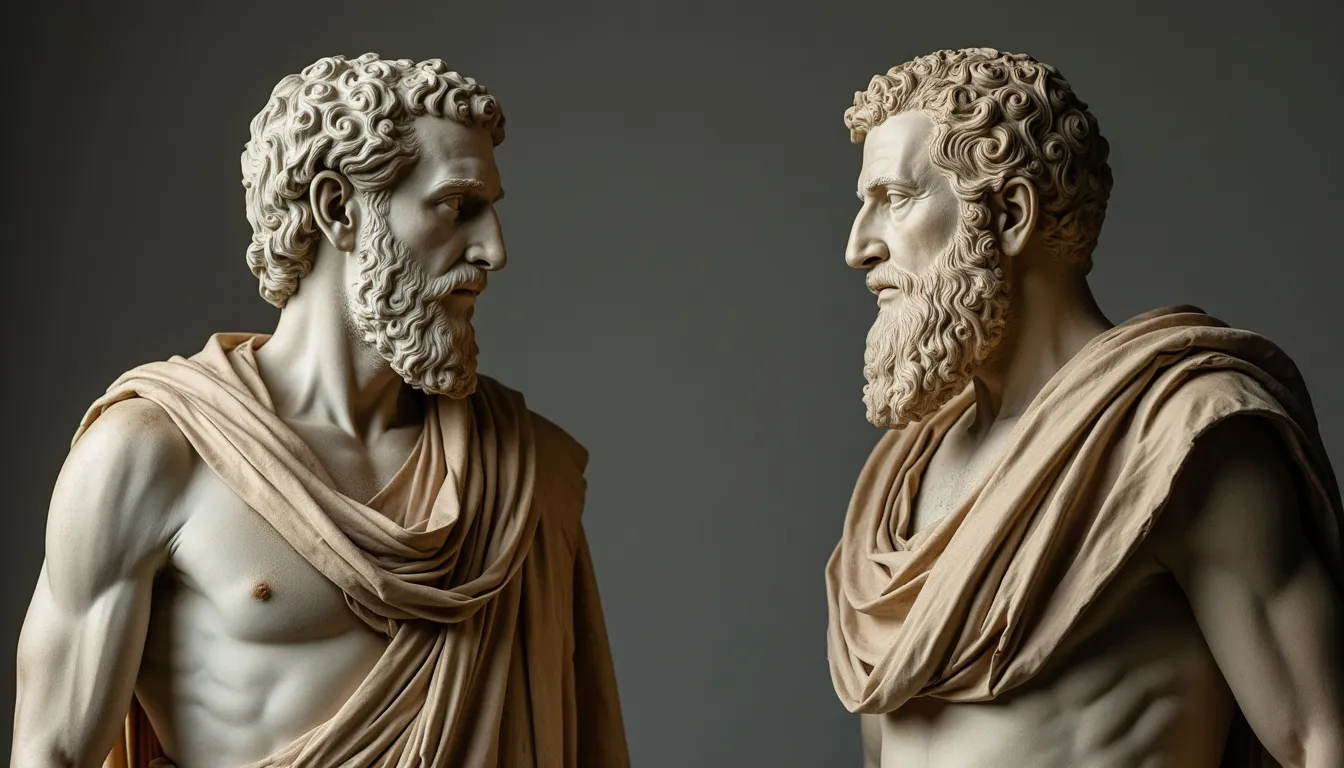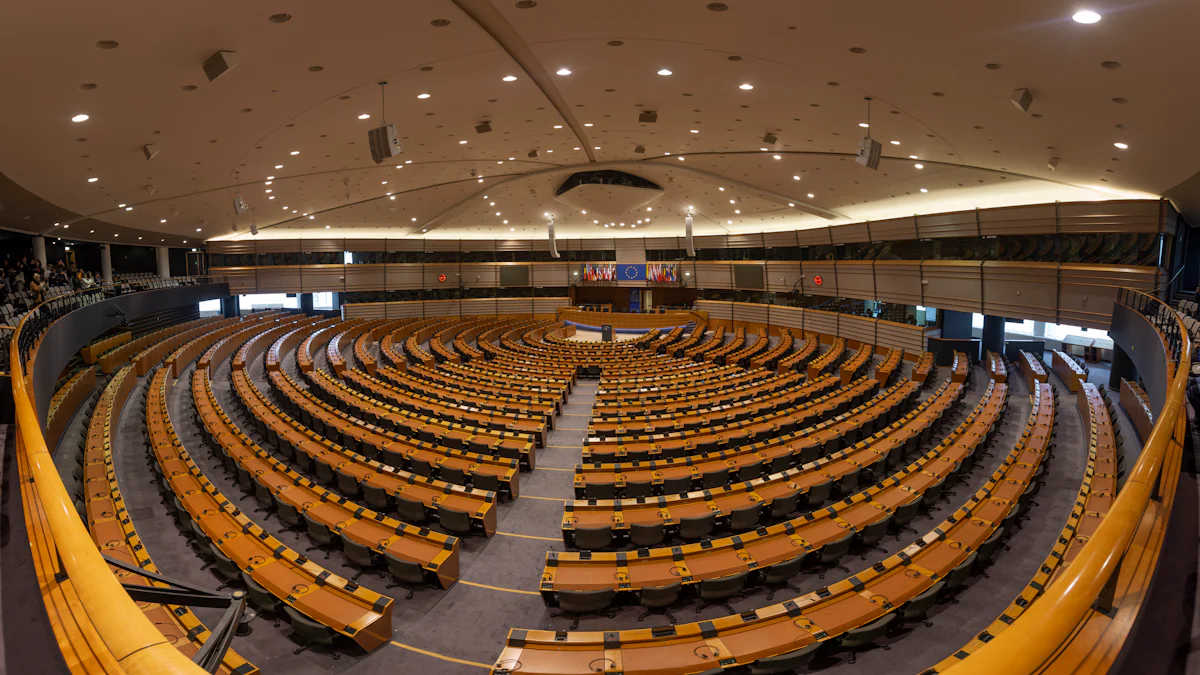How Politics Works: The Concepts Visually Explained

Understanding politics and history shapes societies and influences daily life. Engaging with political concepts helps you connect with the world. Many feel uninformed about politics, limiting their participation. Knowledge of political history and systems empowers informed decision-making. Visual aids make complex political ideas accessible. Clear graphics and simple language enhance learning. Grasping political concepts builds civic literacy, strengthening democracy and community involvement. Explore politics and history to become an informed citizen.
Foundations of Political Theory
Key Political Philosophers
Plato and Aristotle

Plato and Aristotle laid the groundwork for political philosophy. Plato explored the idea of justice and the ideal state. He believed in philosopher-kings as rulers. Aristotle, a student of Plato, focused on practical governance. Aristotle analyzed different political systems to find the best form of government. Both philosophers influenced the development of Western political thought.
Machiavelli and Hobbes
Machiavelli introduced a realistic approach to politics. He emphasized power and strategy in governance. His work, "The Prince," remains influential in understanding political power. Hobbes, on the other hand, discussed the social contract. He argued that people consent to government for protection. Hobbes believed in a strong central authority to maintain order. Both thinkers contributed to modern political theory.
Core Political Theories
Liberalism
Liberalism values individual freedom and equality. This theory supports democratic governance and human rights. Liberalism promotes free markets and personal liberties. It has shaped many Western democracies.
Conservatism
Conservatism emphasizes tradition and social stability. This theory values gradual change over radical reform. Conservatism often supports strong institutions and cultural heritage. It plays a significant role in maintaining societal order.
Socialism
Socialism advocates for social ownership and equality. This theory seeks to reduce economic disparities. Socialism supports collective welfare and public control of resources. It has influenced various political movements throughout history.
Political philosophy explores how ethical concepts apply to society. Philosophers like Plato and Aristotle set standards for judging institutions. Social contract theory helps understand justice and the state. Political theories like liberalism and socialism guide the use of public power. These ideas shape Politics and History, influencing governments and societies.
Systems of Government

Understanding different systems of government helps you grasp how Politics and History shape societies. Each system offers unique ways to organize power and authority.
Democracy
Democracy empowers citizens to participate in decision-making. This system values individual rights and freedoms.
Direct Democracy
Direct democracy allows citizens to vote on laws and policies directly. Ancient Athens practiced this form. Modern examples include referendums where people decide specific issues.
Representative Democracy
Representative democracy elects officials to make decisions on behalf of citizens. This system balances efficiency with public input. The United States and many European countries use representative democracy.
Authoritarianism
Authoritarianism centralizes power in a single leader or group. Citizens have limited political freedoms.
Totalitarian Regimes
Totalitarian regimes control all aspects of life. Leaders use propaganda and surveillance to maintain power. North Korea exemplifies a totalitarian regime.
Military Dictatorships
Military dictatorships arise when military leaders seize control. These regimes prioritize security and order. Historical examples include Chile under Pinochet.
Monarchy
Monarchy involves a royal family ruling a country. Monarchies can vary in power and structure.
Constitutional Monarchy
Constitutional monarchy limits royal power through a constitution. Monarchs serve as ceremonial figures. The United Kingdom follows this model.
Absolute Monarchy
Absolute monarchy grants monarchs complete control. Rulers make decisions without legal constraints. Saudi Arabia operates as an absolute monarchy.
Different government systems reflect diverse approaches to power and governance. Understanding these systems enriches your knowledge of Politics and History. This awareness enhances civic literacy and informed participation.
Political Processes and Institutions
Understanding political processes and institutions helps you engage with Politics and History. These systems shape how societies function and govern.
Electoral Systems
Electoral systems determine how votes translate into seats. Different systems impact representation and governance.
First-Past-The-Post
First-Past-The-Post (FPTP) awards victory to the candidate with the most votes in a constituency. This system often leads to a two-party structure. The United States and the United Kingdom use FPTP. Critics argue that FPTP can lead to unequal representation.
Proportional Representation
Proportional Representation (PR) allocates seats based on the percentage of votes each party receives. PR aims to reflect the electorate's diversity. Many European countries, like Denmark, implement PR. This system encourages multi-party participation.
Legislative Bodies
Legislative bodies create laws and policies. Understanding their structure enhances your grasp of Politics and History.
Unicameral Systems
Unicameral systems have a single legislative chamber. This structure simplifies law-making. Countries like Denmark and New Zealand use unicameral systems. Supporters argue that unicameral systems streamline governance.
Bicameral Systems
Bicameral systems consist of two chambers. This structure allows for checks and balances. The United States and Japan have bicameral legislatures. Advocates believe bicameral systems ensure thorough debate and review.
Political processes and institutions play crucial roles in shaping societies. Electoral systems influence representation. Legislative bodies create and enforce laws. Engaging with these concepts enriches your understanding of Politics and History.
Contemporary Political Phenomena

Understanding contemporary political phenomena helps you connect with current global dynamics. These phenomena shape societies and influence daily life.
Populism
Populism has gained momentum in recent years. This movement often challenges established political systems.
Rise in Europe
Europe has seen a significant rise in populist movements. Economic insecurities drive support for these groups. Many people feel left behind by globalization. Cultural identity plays a crucial role in this shift. Right-wing populism often gains traction through these concerns. Leaders capitalize on fears about cultural change.
Impact in the Americas
Populism also impacts the Americas. Economic worries fuel this trend. Many citizens express dissatisfaction with traditional politics. Populist leaders promise to address these concerns. The rise of populism reflects broader societal changes. Politics and History reveal patterns in these movements.
Globalization
Globalization connects economies and cultures worldwide. This process influences political landscapes.
Economic Impacts
Globalization affects economies in complex ways. Many regions experience growth and development. Some communities face challenges due to competition. Economic disparities can lead to political unrest. Populism often emerges from these tensions. Understanding globalization's economic effects enriches your grasp of Politics and History.
Cultural Impacts
Cultural exchange increases through globalization. Societies become more interconnected. Some people embrace this diversity. Others fear losing cultural identity. These fears can drive populist sentiments. Globalization shapes cultural landscapes and political dynamics.
Contemporary political phenomena like populism and globalization impact societies globally. Engaging with these concepts enhances your understanding of Politics and History. This knowledge empowers informed participation in civic life.
Historical Context and Evolution
Understanding historical context enriches your grasp of Politics and History. Major political movements and evolving political thought have shaped societies.
Major Political Movements
Civil Rights Movement
The Civil Rights Movement transformed American society. Activists fought for racial equality and justice. Leaders like Martin Luther King Jr. inspired change through nonviolent protests. The movement led to significant legal reforms. The Civil Rights Act of 1964 ended segregation. Voting rights expanded with the Voting Rights Act of 1965. These changes empowered marginalized communities.
Feminist Movement
The Feminist Movement advocated for gender equality. Women demanded equal rights and opportunities. Activists challenged traditional gender roles. The movement gained momentum in the 1960s and 1970s. Key achievements included the right to vote and workplace equality. The Equal Pay Act of 1963 addressed wage disparities. Feminism continues to influence modern society. Gender equality remains a central issue in Politics and History.
Evolution of Political Thought
Enlightenment Ideas
The Enlightenment sparked new political ideas. Thinkers emphasized reason and individual rights. Philosophers like John Locke and Jean-Jacques Rousseau questioned authority. Locke's theories on government influenced democratic principles. Rousseau's social contract theory shaped modern governance. Enlightenment ideas promoted freedom and equality. These concepts laid the foundation for democratic societies.
Post-Cold War Politics
Post-Cold War politics reshaped global dynamics. The fall of the Berlin Wall in 1989 marked the end of the Cold War. Nations transitioned from communism to democracy. Globalization increased economic and cultural exchanges. New political challenges emerged, such as terrorism and climate change. The post-Cold War era highlights the complexity of Politics and History. Understanding these changes enhances civic literacy.
Historical movements and evolving political thought provide valuable insights. Engaging with these concepts deepens your understanding of Politics and History. This knowledge empowers informed participation in civic life.
Understanding political concepts empowers you to engage with the world. Political knowledge enhances civic literacy and strengthens democracy. Visual aids simplify complex ideas, making them accessible. Exploring political theories and systems enriches your perspective. Political awareness remains crucial in today's society. Encourage open dialogues about politics to foster informed citizens. Critical thinking in political spheres ignites broader societal change. Embrace the ongoing journey of learning about politics. Engage with political history to become an active participant in governance.
See Also
Explaining Technology: Visual Facts Unveiled
Simplified Economics: Key Concepts Illustrated
Visual Encyclopedia of Presidents

